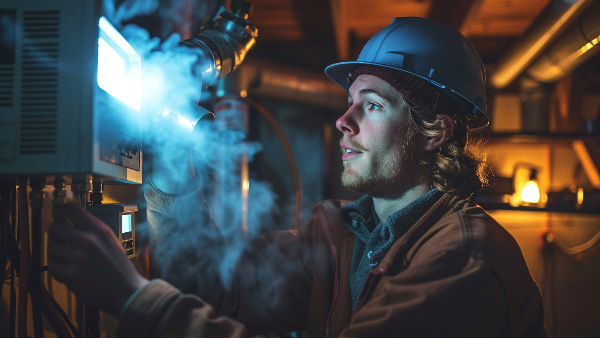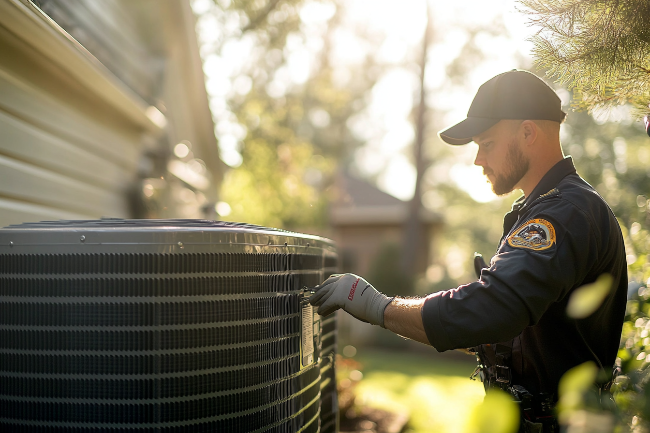What to Look for in an HVAC Quote
Understanding and Reviewing HVAC Estimates
Installing new HVAC equipment, putting in a new furnace, or performing a non-routine repair is a big expenditure. Homeowners should review the estimate that they receive from an HVAC contractor discerningly. Knowing what to look for will help you make well-informed decisions about which company to work with. The content in estimates also speaks to a company’s professional know-how and what to expect from its workmanship. Here are a few key things that you should find in an HVAC estimate.
The Scope of Work That an HVAC Contractor Will Perform
Before you sign off on a major home improvement project, you and the HVAC contractor who you work with need to be on the same page about the work that needs to be done. An estimate describing work as a repair and nothing more does not really let you know what a contractor is planning on doing. Instead, an estimate should detail what type of repair the estimate covers and what the contractor will do to carry it out. Ultimately, your estimate should convey the scope being performed in its entirety.
Equipment Information
The written quote that you receive from an HVAC contractor ought to clearly identify proposed equipment. Relevant information about equipment includes the manufacturer, make, and model. When you are installing a new HVAC system, you should also check out the manufacturer’s Seasonal Energy Efficiency Rating. SEER numbers reflect how efficiently a condenser runs, so it is an important factor to consider. The higher a product’s SEER, the less it will cost to operate.
You may find that an estimate for a new installation lists multiple components. If you are thinking about replacing a rusty, failing condenser, an estimate is also likely to include the cost of replacing an air handler. In general, it is preferable to replace this equipment at the same time. This helps systems work efficiently and reach their operable lifespan. Also, bear in mind that an HVAC contractor may recommend changing the size of your equipment to better accommodate your home’s square footage or conserve energy if your current system exceeds your actual needs.
Here is an example to consider: If you are changing from a 2.5 ton condenser to a 3 ton condenser, for example, attaching it to a 2.5 ton air handler could be problematic. A 2.5 ton air handler can not distribute the 3 ton condenser’s cool air with the same efficiency of a 3 ton air handler. Likewise, a 3 ton air handler attached to a 2.5 condenser would expend more energy than it has to in order to distribute the cooler air from a 2.5 ton condenser. The main takeaway about mismatches is that you may not really be getting the full benefit of changing one component if you do not change another at the same time.
Pricing
A professional HVAC estimate should let you know how much you are spending on parts and how much you are spending on labor. An estimate may specify an hourly rate with an approximation of the hours that it will take to complete the work.
If you are using financing for a purchase and obtaining it directly from a service provider, an estimate should describe your monthly payment obligation in detail. It should also provide a clear accounting of interest charges and other applicable fees.
Warranties on Parts and Labor
HVAC components and furnaces typically come with a manufacturer’s warranty on parts. For the most part, labor warranties are offered by HVAC service companies rather than manufacturers. When you review an estimate, ascertain whether it includes a warranty from the manufacturer, the company that installs it, or both. Be aware that it may be necessary to register a product’s warranty with a manufacturer, and this responsibility may fall on a customer rather than the company that the customer buys it from.
Next, identify whether a warranty covers parts, labor, or both. Warranties on labor tend to be shorter than those covering the replacement of parts. However, it may be possible to purchase an extended warranty with an HVAC service company on certain components. In addition, you may have an option to buy an extended manufacturer’s warranty.
HVAC Contractor Credentials
HVAC installation and service is a highly technical field, and service companies need to have appropriate licensing from the state’s department of professional licensure. An estimate or invoice should contain an HVAC contractor’s license information. You can verify that licenses are in good standing by consulting state records.
In addition to being licensed, an HVAC contractor should also be insured. In fact, many condominiums and HOAs have regulations mandating that any professional service companies who do work on the premises provide proof of insurance.
To get an estimate on a new installation or other HVAC services, contact Next Level HVAC. We offer free quotes with no obligation. Our team is ready to help.









